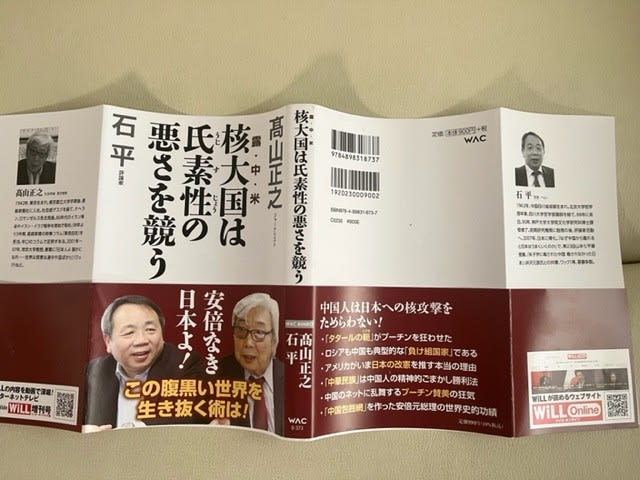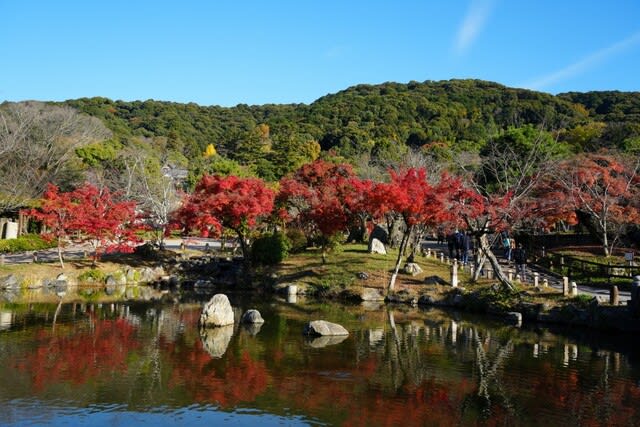A long time ago, an elderly female professor of the Royal Ballet School of Monaco, who prima ballerinas around the world greatly respect, visited Japan.
She spoke at that time about the significance of an artist's existence.
She said, "Artists are important because they are the only ones who can shed light on hidden, concealed truths and express them."
No one would dispute her words.
It is no exaggeration to say that Masayuki Takayama is not only the one and only journalist in the postwar world but also the one and only artist in the postwar world.
On the other hand, many of those who call themselves artists, such as Oe, Murakami, and Hirano, do not even deserve the artist's name.
They have only expressed the lies created by the Asahi Shimbun and others rather than shedding light on hidden truths and telling them.
Their existence is not limited to Japan but is the same in other countries worldwide.
In other words, only a minimal number of actual artists exist.
This book also keenly proves that I am right when I say that no one in the world today is more deserving of the Nobel Prize in Literature than Masayuki Takayama.
Are Japanese the Only Ones to Condemn "Attacks on Civilian Facilities?
Sekihei
By the way, even in Putin's war this time, Japanese people have condemned Russia's targeting of civilian facilities.
Generally, they attack military facilities in wars, but not civilian facilities.
Hospitals are not attacked; there are rules like that.
They completely ignore those rules and attack shopping centers, schools, and even hospitals.
What do you think about that form of warfare?
Takayama.
Mr. Sekihei even pays attention to Japanese flowers and plants.
In doing so, even your heart has become Japanese.
In general, only Japanese people do not touch non-combatants.
Such Japanese sensibilities are not accepted in the world.
During the Pacific War, the U.S. B-29s repeatedly dropped bombs on Nagoya Castle, which was not a munitions factory.
They burned down the entire city without thinking of civilian casualties.
Sekihei
Quite the opposite, the Japanese did not target civilian facilities.
Takayama
There was a Hollywood movie called "Pearl Harbor."
There is a scene where Japanese planes bomb a hospital. That is an outright lie.
But Hollywood intentionally created such a scene, saying, "Japan is a non-Christian barbarian, so of course, they would go to such lengths."
There are records of the attack by Japanese planes at Pearl Harbor, but among the nearly 200 vessels in the harbor, not a single shot was fired at any of the ships bearing the Red Cross symbol.
At the Pearl Harbor Memorial Hall, a video of the attack on Pearl Harbor is shown, and at the end of the video, a subtitle reads, "More than 50 civilians died."
When I asked what the basis for this was, the answer was not that Japanese planes attacked Pearl Harbor but that U.S. anti-aircraft fire fell on the city of Honolulu, 35 kilometers away, causing civilian deaths.
The fact that it doesn't write so honestly is deceitful.
Sekihei
Japan is a country of humanitarian and bushido spirit, and ordinary people do not directly participate in battles.
Ordinary people are not directly involved in battles.
In China, however, the castle contains the inhabitants, so naturally, the inhabitants living there are also targets.
In Japan, castles and castle towns are separate.
Takayama
But the peasants watch them closely and suddenly turn into "ambush" robbers.
Peasants who look docile are the scariest of all.
Akechi Mitsuhide was killed because of this.
Sekihei
It was a hunt for fallen warriors, wasn't it?
Takayama
It is a pretty word, but it was the same with Akechi Mitsuhide and when Shimazu Yoshihiro, who was fighting for the Western Army in the Battle of Sekigahara, escaped by crossing right in front of the Tokugawa position in what he called a "breakthrough amid the enemy."
Most generals could escape from the battlefield, but they were ambushed and attacked by peasants, resulting in tremendous casualties.
On the contrary, the hunt for fallen warriors was so popular because it assumed that civilians were not to be used in battle.
If warriors were severe, they would not lose their lives so quickly in the hunt for fallen warriors.
Sekihei
It is the same with the Chinese Red Guards.
They go wild with joy when they openly feel they can destroy something.
They formed a student movement called the Long March and began denouncing everything.
The government gave them unparalleled treatment, providing train fares, lodging, and meals, and had them scattered all over China.
At that time, the Red Guards were even authorized to kill people.
Even if they killed people, no one would be charged with a crime if they were declared "counter-revolutionary" and informed.
Killing someone is considered a revolutionary act.
In this sense, there is one difference between the purges of the Han Chinese and the Russians, for example, Mao Zedong and Stalin.
Stalin's purges took the form of organized shootings using police units.
On the other hand, Mao's purges incite people to hate each other and make them kill each other.
So even though hundreds of thousands were killed in the Cultural Revolution, most underlings were not police.
They are very ordinary citizens, young people.
For example, it was common for high school students to kill their teachers who taught them.
In other words, Mao's purges were insidious compared to Stalin's.
It has liberated the ugliest part of humanity in the name of "revolution."
Takayama
And he let it go unchecked.
Sekihei
On the contrary, they expanded it even further.
Everyone sometimes thinks, "I hate this guy."
Then, if there is the name of "revolution," killing them is justified, and they feel a sense of pleasure. It is also a way to take revenge.
But in Japan, even if people are called to do something like that, only some people do it.
I believe this is not so much a matter of the Communist Party system as a matter of national character.
Speaking of the Communist Party, another horrible thing the Russians did was to take communism, which Marx and Engels had created just for fun. Lenin took it seriously and turned it into a social and political movement, creating a communist dictatorship.
By extension, the Communist Party of China and the Workers' Party of Korea were born, creating extremely authoritarian and oppressive organizations.
It has become a significant threat to world peace.
Even the Korean War began with Kim Il Sung's invasion of Korea, and if there had been no Communist Party forces on the Chinese mainland, there would have been no Cultural Revolution massacres.
















